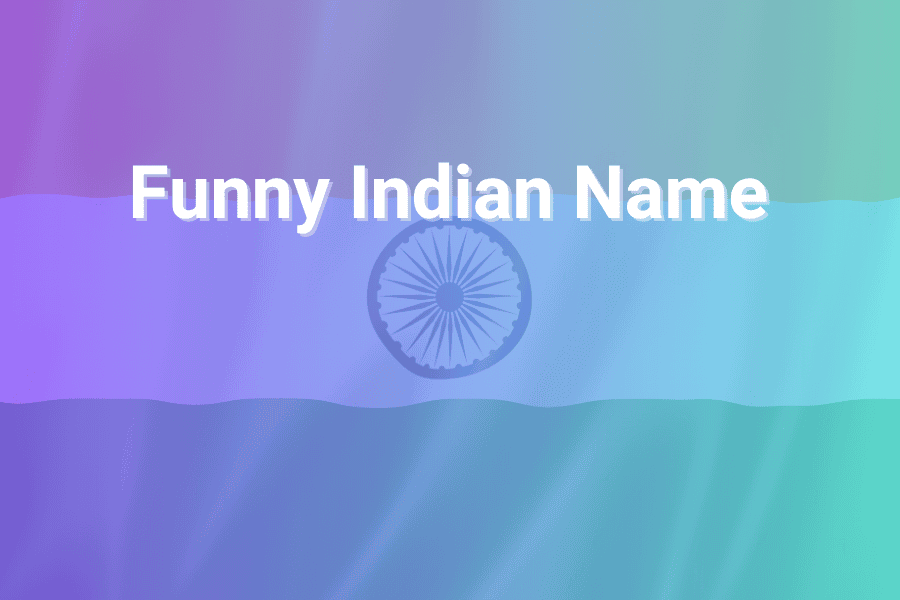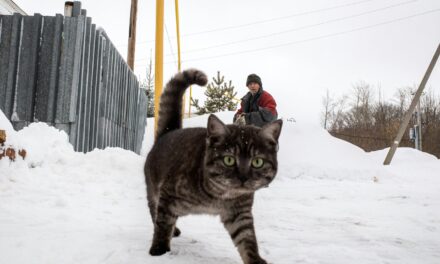Meta DescriptioNames can carry meaning, culture, and pride—but sometimes, they also carry a spark of humor. Across India’s vast linguistic and cultural landscape, you’ll find names that sound unintentionally funny, especially when pronounced by English speakers.
From tongue-twisting syllables to hilarious word combinations, these names reflect how language and laughter often collide in the most delightful ways. In this article, we’ll explore some of the funniest Indian names, why they sound amusing, and how they reflect India’s playful relationship with language, identity, and humor.
The Cultural Context Behind Funny Indian Names
Before diving into the funniest examples, it helps to understand why these names exist in the first place. India is a country of more than 1.4 billion people and over 22 officially recognized languages. Every region, religion, and linguistic group has its own naming traditions. A name that sounds perfectly normal in Hindi might mean something entirely different in Tamil or English. That’s often how the humor begins.
For instance, words like “Hardik,” “Dikshit,” or “Poonam” are respectable names in India—but to outsiders, they can sound suggestive or funny due to their English associations. It’s a linguistic coincidence, not an intentional joke, yet it creates endless amusement in cross-cultural settings.
How Indian Names Are Formed
Many Indian names come from Sanskrit roots, mythological figures, nature, or spiritual attributes. Some are derived from professions, clans, or even historical events. For example:
Names like Vikram, Arjun, and Sita are drawn from epic tales.
Others like Laxmi or Ganesh honor deities.
Regional influence adds flavor—South Indian names often have longer structures, while North Indian ones are shorter and sometimes anglicized.
Because India’s languages overlap and evolve constantly, meanings shift across cultures and generations. That’s how a name like “Kokila” (meaning cuckoo bird) might sound beautiful in Hindi but funny to someone unfamiliar with its meaning.
The Charm of Phonetic Humor
Phonetics play a big role in what makes certain Indian names funny to non-native speakers. English listeners often interpret syllables differently, giving ordinary names an unexpected comic twist. Take Dikshit, a common surname meaning “initiated” or “learned one.” When pronounced in English, it sounds like an expletive—though in Hindi, it’s elegant and traditional.
Similarly, Hardik (meaning heartfelt) is completely respectable in India, but can make English speakers chuckle. It’s these innocent overlaps that make the humor so harmless yet enduring.
Funny Indian Names That Turn Heads
Let’s look at some real examples of Indian names that often make people do a double take. These aren’t made up—they’re genuine names found across different regions of India.
- Hardik – Means “heartfelt” in Hindi, but English speakers hear something else.
- Dikshit – A scholarly surname that becomes an instant joke abroad.
- Poonam – A beautiful name meaning “full moon,” but easily misinterpreted by non-Indians.
- Manmohan – A name meaning “charming heart,” yet can sound funny to someone unfamiliar with its poetic origins.
- Kusum – Means “flower,” but can sound like “kiss ’em” in English accents.
- Bhoomika – A lovely Sanskrit name for “foundation” or “role,” though the “Bhoo” sound makes it funny to some ears.
- Sushmita – Means “smiling face,” but sounds quirky to foreigners unfamiliar with Indian phonetics.
- Jolly – A real first name and surname found in India, though it sounds more like a mood than a person.
- Santa Singh – A common Sikh name that instantly sparks laughter due to the English connection to Santa Claus.
- Lucky – Popular in Northern India, this English word as a given name often confuses outsiders.
Regional Humor in Names
Certain Indian states have their own brand of funny names. In South India, long compound names can sound like entire sentences to outsiders. For instance, “Venkatachalapathy” or “Rajasekaran” may be normal family names but seem like tongue twisters to anyone unfamiliar with Dravidian phonetics.
In contrast, North Indian names often feature syllables like “Lal,” “Ram,” and “Singh,” which can be humorously repetitive when paired. For example, Babu Lal Lal or Ram Ram Singh may sound amusing but are quite real.
Meanwhile, in the East—especially in Bengal—nicknames (known as “Daak Naam”) can be hilariously creative. Many Bengalis grow up with pet names like Bubun, Tutu, Bumba, or Khoka. These are rarely used officially but have such charm that even adults carry them fondly.
Funny Indian Surnames That Spark Laughter
Surnames can sometimes outshine first names in the comedy department. Because they often derive from professions or castes, their meanings can be very literal. A few notable examples:
Patel – Common among Gujaratis; so widespread it’s often part of jokes about Indian hotel owners in the U.S.
- Munde – A Maharashtrian surname that sounds like “Monday.”
- Naik – Means “leader,” but often misheard as “naked” in certain accents.
- Lungi – Though rare, this name shares its sound with the South Indian garment, making it instantly funny.
- Kanta – A name meaning “beloved,” but to English speakers, it can sound like “can’t-a.”
- Bhoot – Means “ghost” in Hindi; though uncommon, it exists as a surname in some regions.
Nicknames That Add to the Fun
Beyond formal names, India is famous for its quirky nicknames. Friends and family use them freely, often inspired by personality, looks, or sheer randomness. Some funny nicknames Indians give each other include:
Golu (chubby one)
- Pinky (common among girls)
- Bunty or Monty (popular among boys)
- Chintu (little one)
- Guddu (sweetie)
- Bablu (used affectionately for sons)
Sweety or Sonu (nicknames that can apply to anyone, regardless of gender)
These names aren’t just funny—they show affection, closeness, and community warmth. Even in adulthood, many Indians keep these nicknames alive, especially among family members.
How Humor in Names Builds Connection
Funny names do more than entertain. They bring people together. A lighthearted name can break the ice, create memories, and make introductions less formal. For Indians living abroad, their names often become conversation starters. Someone named Dikshit or Hardik might face jokes at first, but it often leads to deeper cultural exchanges. Humor helps bridge the gap between languages.
When Names Go Viral
In the age of social media, funny names travel fast. Screenshots of ID cards, wedding invitations, or name boards with amusing combinations often trend online. A restaurant owner named Mr. Paneer Singh or a cricket fan named Hardik Ballal can become overnight memes.
One viral trend featured school certificates with students named Sofa Nair or Happy Goel, which amused global audiences. While these names are genuine, they show how linguistic differences can transform simple words into comedy gold.
What Makes a Name Funny Across Cultures
The humor in names depends on a few universal triggers:
Phonetic coincidence – When a name sounds like something else in another language.
Unexpected meaning – When a translation creates irony or absurdity.
Cultural contrast – When serious names clash with casual foreign interpretations.
Repetition or rhythm – Certain name structures just sound amusing to non-speakers.
This explains why Santa Singh or Lucky Sharma can make someone grin while still being entirely respectable within Indian culture.
Changing Perceptions Over Time
Interestingly, the humor around Indian names is shifting. Younger generations are more global and self-aware. They often embrace the humor instead of feeling embarrassed. Many Indians abroad even turn their funny names into brand advantages—using them to stand out on social media or in entertainment.
The name Hardik might once have caused awkward introductions, but now it can be a playful talking point. It shows confidence and cultural pride, turning potential mockery into a moment of charm.
How Bollywood and Pop Culture Amplify the Fun
Bollywood has long contributed to funny naming trends. Comic characters like Circuit in Munna Bhai MBBS or Lallan Singh in Bunty Aur Babli carry exaggerated names that stick in memory. Movies often use names to build personality—whether it’s Guddu, Pappu, or Bholu. These familiar sounds seep into everyday language, inspiring parents and friends alike.
Even TV comedies and social media sketches lean heavily on names for humor. Content creators play with puns and regional nuances, reminding viewers how identity and laughter intertwine in Indian life.
Funny Names in Real Life Professions
Sometimes humor shows up where it’s least expected—on business cards or signboards. Imagine meeting a dentist named Dr. Pain, a teacher called Mr. Perfect, or a lawyer named Justice Singh. These combinations exist and often end up online, drawing smiles while showcasing India’s unfiltered real-world charm.
In workplaces, especially multinational companies, Indian employees with such names often share light-hearted stories of how their coworkers react. It’s part of what makes modern professional spaces more inclusive and open to cultural quirks.
What We Can Learn From Funny Indian Names
Beneath all the laughter lies a valuable lesson: language is alive and unpredictable. A name that seems hilarious in one context might carry deep meaning in another. Humor reminds us to stay curious rather than judgmental.
India’s funny names symbolize resilience and adaptability—how people can find joy even in everyday situations. They reflect a culture that embraces contrast, celebrates diversity, and laughs at itself with ease.
Tips for Appreciating Funny Names Respectfully
If you encounter a funny Indian name, here’s how to react gracefully:
Laugh with kindness. Understand it’s rarely intentional.
Ask about the meaning. You’ll often discover something beautiful behind it.
Avoid mockery. Humor loses its warmth when it turns personal.
Celebrate uniqueness. Every name has a story worth knowing.
Conclusion: The Power of Humor in Identity
Funny Indian names remind us that language is a bridge, not a barrier. They spark laughter, curiosity, and connection across cultures. What starts as a joke can become a story about respect, pride, and shared humanity. In a world often divided by differences, these names invite everyone to see how humor can unite us.
They’re more than words—they’re snapshots of how India balances tradition and playfulness, seriousness and joy. So the next time you meet someone named Hardik, Lucky, or Santa Singh, smile first and ask what their name really means. The answer might surprise you—and definitely make you laugh again.










